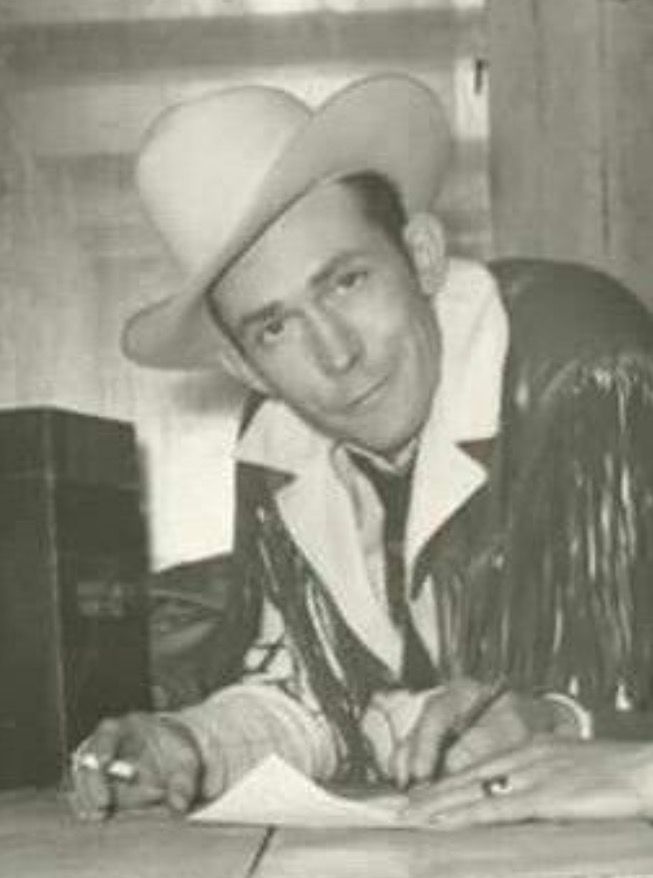The Haunting Echoes of Heartache and Wandering Solitude

In 1950, a mournful yet evocative melody swept across the American soundscape, capturing the profound melancholy of those who find themselves adrift in the sea of life’s desolation. Hank Williams‘s Long Gone Lonesome Blues emerged as a timeless testament to the raw emotions that lie at the heart of country music. This song, released as a part of his prolific career, ascended to number one on the Billboard Country & Western chart, echoing deeply within the souls of countless listeners. As a follow-up to his earlier success with Lovesick Blues, Long Gone Lonesome Blues was featured in the compilation album Moanin’ The Blues, further solidifying Williams’s position as a master storyteller and a poignant chronicler of human sorrow.
The creation of Long Gone Lonesome Blues is steeped in personal significance for Hank Williams, a man whose life often mirrored the tumultuous tales he sang about. Written during a period marked by personal turmoil and struggles with alcohol, Williams channeled his own experiences into a narrative that speaks of isolation and longing. The song tells the story of an individual overwhelmed by heartache, setting out on an aimless journey into the unknown—seeking solace in motion but finding only echoes of their own despair.
Musically, the song is a masterclass in capturing mood through simplicity and sincerity. The plaintive twang of Williams’s voice intertwines seamlessly with the wailing notes of his guitar, creating an auditory landscape that mirrors the forlorn lyrics. This juxtaposition of stark instrumental minimalism against rich vocal delivery elevates the emotional weight of each verse. The repeated refrain serves as an anchor to which listeners can moor their own feelings of loss, reflecting the universal experience of searching for meaning amidst heartbreak.
Lyrically, Long Gone Lonesome Blues is characterized by its poignant imagery and unvarnished honesty. Lines such as “I’m gonna find me a river, one that’s cold as ice / And when I find me that river, Lord I’m gonna pay the price” encapsulate not only a physical journey but also an existential quest for redemption or release from suffering. Williams employs the river as a metaphor for both escape and finality, inviting listeners to delve into their own reflections on life’s impermanence and the relentless passage of time.
As much as it is a tale rooted in personal anguish, Long Gone Lonesome Blues resonates on a broader cultural level. It speaks to an era when many Americans faced economic hardship and emotional isolation—a post-war world where traditional values clashed with emerging modernity. In this context, Williams’s song became an anthem for those grappling with changing societal landscapes and personal disillusionment.
Hank Williams has left an indelible mark on the musical canon, with Long Gone Lonesome Blues standing as a quintessential piece of his legacy. This song captures the enduring essence of country music: its ability to give voice to our innermost struggles while offering solace through shared experience. As long as there are hearts heavy with unspoken sorrows and weary souls wandering through life’s vicissitudes, Long Gone Lonesome Blues will continue to echo its haunting refrain across generations, reminding us all that we are not alone in our journeys through lonesomeness and longing.